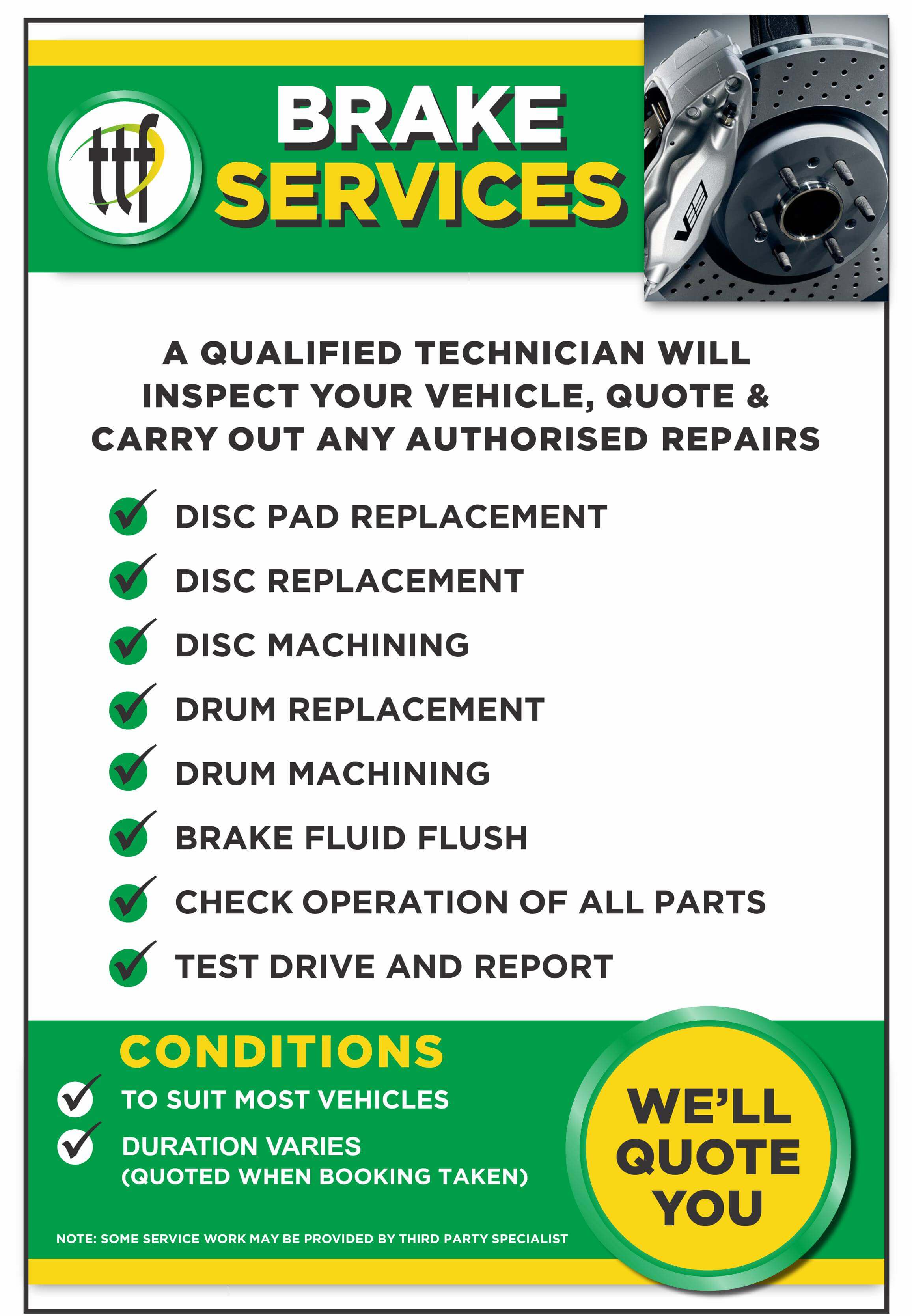
It goes without saying brakes are the most important safety aspect of driving a car, if you can't stop effectively you're going to find yourself in real trouble. We're able to inspect and service your entire braking system to ensure it's safe to drive and while making sure that the mechanics of the brake system is working, the majority of the time your brakes are going to get your attention is when they start to squeal and the pads and/or rotors to be replaced or machined. Whenever you have your vehicle serviced with us, we'll be sure to inspect your brakes and let you know when they're coming up for replacement.
Brakes are a critical safety system of a vehicle. The brake system should be checked at every service and not be interfered with by anybody who does not have the appropriate skills, experience and the latest service equipment.
A typical brake service would include:
- Check disc brake and or drum shoe wear levels
- Replace front and rear pads/shoes if necessary
- Inspect brake fluid levels and check braking system components
- Road test vehicle to check that brakes are operating correctly
We service your vehicle with the Bendix Front or Rear Brake Pads from $179*. We offer our customers peace of mind with our quality of work and expertise on brake services.
(From) $179 Brake Service inclusions:
- Supply and fit Bendix disc pads.(European cars, 4x4 and Trade parts extra and quoted at time of service.)
- Inspect disc rotors for condition and thickness.
- Inspect brake caliper operation.
- Clean and lubricate caliper sliding pins and contact areas.
- Visually inspect brake master cylinder.
- Check brake fluid condition and top up if necessary.
- Check park brake operation
- *(Machining Discs is extra and quoted at time of service)
Common brake issues and warning signs
Here are (some) of the signs that your car’s braking system needs a check-up:
- A spongy brake pedal
- A grinding sound when you press the brake pedal
- Squealing brakes
- The car pulling to one side when you brake
- The brake warning light illuminating
- The brake pedal being hard to press
How do car brakes work?
Brakes are part of your car’s hydraulic system, allowing you to slow down or stop the car using pressure and friction. As you step on the brake pedal, fluid in the brake system builds up pressure against the brake pads and/or shoes. These brake pads and shoes then grab onto the metal rotors and drums in the wheel assemblies, effectively slowing or stopping the car. The emergency brake system usually applies the brakes to the rear wheels mechanically or electronically when you activate the hand brake or foot brake.
Most cars use disc and drum brake assemblies in their brake systems. These days cars are fitted with disc brakes on all four wheels; however, some cars (such as light commercial models) still use a drum brake assembly on the rear wheels. As safety performance awareness increases, many car manufacturers are fitting anti-lock brakes (ABS) – a computer-controlled system – as an added braking system component to prevent wheel lockup and skidding. ABS usually work in conjunction with other vehicle systems such as stability control.
Our experienced technicians conduct a comprehensive inspection of your car’s braking system components and can advise you on any necessary brake repair service items. Our inspections include but are not limited to: spongy brake pedal, low brake fluid levels and uneven wear on brake pads and brake rotors. We recommend you always perform a brake system check when planning long road trips. This ensures the best possible car performance and safety. We use only the most trusted brands, such as Bendix for parts and all work.

